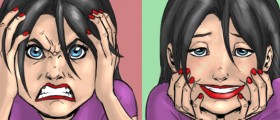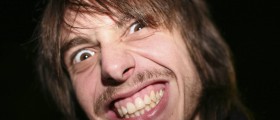
Similarities - Personality Disorder and Bipolar I Disorder
Bipolar disorder is mental disease where the person experiences two distinctive phases, depression and mania. In the manic phase, the patient may show hyperactivity, lack of empathy, self-focus and the need to control everything. There are also euphoria, delusions, fantasies and grandiose schemes and if something got wrong, patient exhibits frequent rage attacks. In most cases, after the manic phase patients experience prolonged depression.These or very similar mood shifts can also be seen in people suffering from various personality disorders, such as: Borderline, Paranoid, Masochistic, Schizotypal or Narcissistic disorder.
Bipolar I Disorder and Personality Disorder - Differences
The main difference between these two disorders lies in the structure of the disease. One narcissist never stops being grandiose, arrogant or change the lack of empathy. His behavior always remains the same, regardless the phase he’s in. It doesn’t matter if he is depressed or euphoric, because he always stays the same person.Bipolar I disorder patients, however, may drastically change in depressive phase. They could depreciate themselves, become pessimistic, feel extremely guilty and experience complete anhedonia, which is not the case in different personality disorders.
According to the book “Malignant Self Love - Narcissism Revisited", narcissists have shorter and more reactive dysphorias. He becomes depressed when something interferes with his Grand Plans, even if this is just the mere reality that interfered. His depression may get very easily resolved and even progress to the state of manic phase or euphoria extremely quickly.
One of the differences between the disorders is the origin of the disease. Patients suffering from bipolar I disorder have problems with the brain chemistry and because of that, they experience these mood shifts. These people frequently describe their symptoms as something completely out of their control. They can be heard to say that they lost control over their brain, attention, motor functions or that they can’t control their speech.
Both of the groups of patients often abuse different substances. However, bipolar patients use them only during the manic phase, while personality disorder patients tend to abuse substances or act compulsively both when they are feeling depressed and euphoric.
Sleeping disorders, especially acute insomnia and also so-called “manic speech” is present in bipolar I disorder but not in personality disorders.
Many people with personality disorders are highly appreciated in their communities and often reach highest functions. Their problems become apparent only under certain circumstances and under a lot of stress. Bipolar I disorder seriously affect social life and professional development of the patient. In some cases, manic episodes of these patients must be treated in hospital environment.
The age of the patient is also important when doctors try to differentiate bipolar I and personality disorders. Personality disorder is usually diagnosed in early adolescence, while many of bipolar disorders are adult people in their 20s or even older.

















Your thoughts on this
Loading...